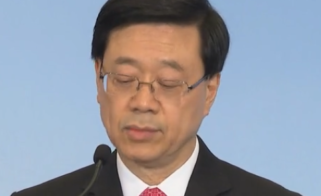The Default Investment Strategy offers a choice for investors, and has its advantage in terms of low cost – but it may not be suitable for everyone as the economic environment shifts
Investors are being warned to be more actively engaged in their Mandatory Provident Fund (MPF) accounts, as the Default Investment Strategy (DIS) fund – the so-called low-cost core fund that all the 14 MPF trustees will launch on April 1 – may not fit everyone amid a changing global economy and rising interest rates.
The DIS automatically makes investment decisions for Hong Kong employees who do not actively manage their MPF accounts, or are puzzled by the more than 400 strategies offered by providers in the city.
“The Citi MPF World Government Bond Index only covers government bonds. The yield was just slightly higher than 1 per cent, which means investors older than 65 can only get capital gains from the 20 per cent equity holdings,” said Paul Chan, head of multi-asset & Hong Kong pensions at Invesco.
“Meanwhile the bond market is going to face higher volatility as the Untied States is on track for raising interest rates.”
The Citi index is the benchmark for bond assets under the DIS, and FTSE MPF All-World Index is used as the indicator for equity assets.
MPF trustees need to explain to the authorities if the DIS fund performance is more than 2.5 per cent higher or lower, compared with the two benchmarks’ performance.
The DIS uses two constituent funds – the Core Accumulation Fund (CAF) and the Age 65 Plus Fund (APF).
The latter, in which inactive Hong Kong employees aged above 65 put all their assets, holds 80 per cent low-risk assets such as global bonds and 20 per cent in high-risk assets such as equities.
“Our house view is that we are underweight on bonds. Comparatively, corporate bonds can generate better returns than government bonds. Meanwhile we are overweight on US equities as the economy is still recovering,” Chan said.
The DIS offers a choice for investors, and is attractive in terms of low fees, but it may not be suitable for everyone amid the changing economic environment and rising interest rates, added Terry Pan, Invesco’s chief executive of greater China, Singapore and Korea.
He suggests investors keep a close watch at what assets they have been allocated by the DIS, and actively manage their MPF accounts.
Citi index has over 97 per cent exposure in Europe, US and Japan, Chan said.
The FTSE index has around 50 per cent exposure in US stocks, 30 per cent in Europe, 8 per cent in Japan, and even less in Hong Kong, he added.
The year-to-date performance of the FTSE benchmark was 5.4 per cent, according to data from FTSE Russell.
Invesco reports 5 per cent of its employee account holders have not chosen their own allocation, whose money will flow to the DIS scheme if they do not take any action.
Citywide, 630,000 MPF employee accounts had not yet made any investment choices of their own as of January, a figure worth HK$11 billion, down from 1.05 million accounts valued at HK$18 billion in November, Mandatory Provident Fund Schemes Authority executive director and chief corporate affairs officer Cheng Yan-chee told its annual media briefing.
The maximum management fee for the DIS fund is 0.75 per cent of the value of the funds on a yearly basis, while the recurrent operational expense is capped at 0.2 per cent. The total maximum cost of 0.95 per cent compares to an average of 1.6 to 1.7 per cent expenses among existing MPF products.
